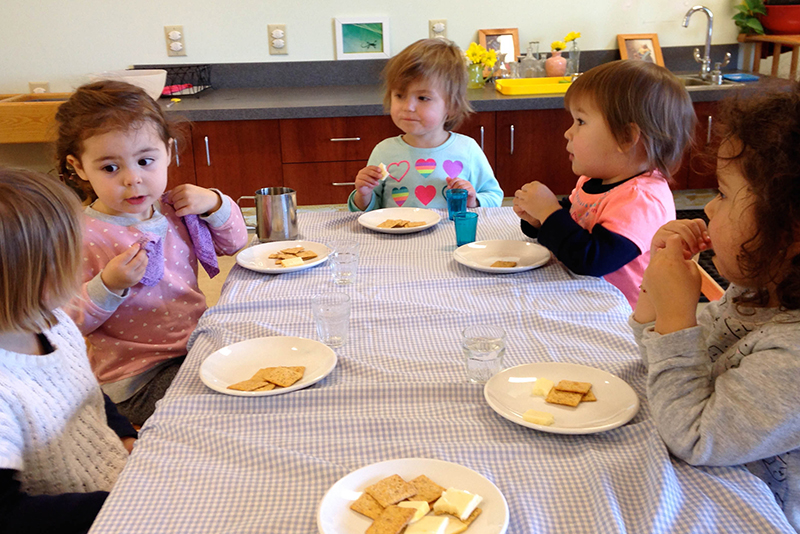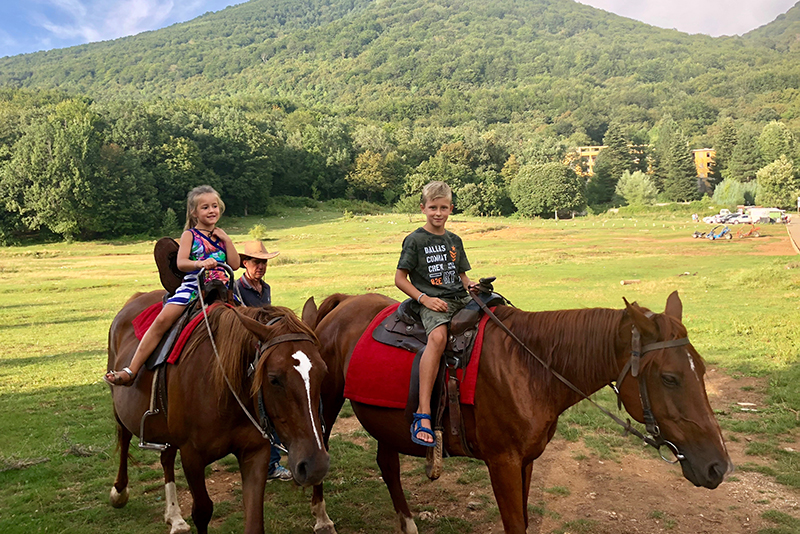We are raising our children in a new world. We cannot relate anymore to our parents’ educational methods, because the world we were raised in, no longer exists. We live in a totally different era, so the approach for parenting our kids needs to be different.
But how to raise well-adjusted kids nowadays?
Books, parenting courses, articles about parenting, children’s specialists and therapists can suggest us the way and indicate the resolution to a problem from a different perspective. But every child is different just like every family is different.
As a parent of younger kids, you read these articles and feel paralyzed by overwhelm and fear and mixed messages. What exactly is the right thing to do? Where am I going wrong?
You should know something.
Change starts with one parent and one child at a time. You have a beautiful window of opportunity to build the foundation that your child desperately needs but also craves. The foundation for things like generosity, responsibility, appreciation, warmth, kindness, helpfulness and hard-work ethic all starts during the early years.
Here’s the hard part.
It starts with us — the parents. Kids cannot even think at the maturity level needed to break a behavior cycle, let alone do anything about it.
So, as the parents, it has to start with these 3 simple tips:
- respect for the child– speak and listen as you would to an adult
- follow the child– trust your child will develop at their own pace
- allow time– when we slow down, there is more time for exploration, curiosity, conversation and connection
Next, you could start concentrating on these simple habits:
Boundaries – set kind and clear limits
It’s hard to set boundaries for kids and stick to them. This is especially true when kids push back, scream endlessly or threaten things like, “I hate you.” Remember that when kids act this way, they are meeting their own needs in the only way they know how. Depending on the boundary, it can take a long time before a child lovingly accepts a parent’s boundary.
When kids start to push back or scream less, this is actually your child moving towards acceptance of the boundary. If your boundary is like a wall (and not a door that confusingly swings open from time to time) your child will bounce and eventually work to meet his or her need in an alternative way.
The world is a very chaotic place. Boundaries help your child, not only feel grounded, but thrive. Check yourself and think about what your real boundaries are. Then remember, they’re brick walls, not doors.
Routines

There’s so much of childhood that is new and challenging for kids. Learning self-control and empathy. Learning how to be a friend and interact with others. These are all very BIG things for kids. Using something as simple as these printable routine cards can help kids feel grounded and relaxed. In fact, knowing what to expect at mealtimes, mornings and bedtimes can bring a sense of relief to even the most carefree child. Have a strong-willed child? Even better. Routines allow kids to feel a sense of control, something that is very important to a strong-willed child.
Read here the whole article why you’re lucky to have a stubborn child.
Early bedtimes
Sleep is the building block for healthy brain development. It helps us process the day’s events and learn from it. Kids brains are constantly developing and creating new neural connections. They absolutely must get sleep to nurture these connections.
Between kid activities, school and always squeezing in tech time, kids are going to bed later and having a difficult time settling before sleep. One of the most basic things you can do for your kids’ behavior, health and well-being is to help them get the sleep they need.
Hugs

There is a saying by Virginia Satir, a respected family therapist:
“We need four hugs a day for survival. We need eight hugs a day for maintenance. We need twelve hugs a day for growth.”
Hugging triggers the release of oxytocin, also known as the love hormone. This feel-good hormone has many important effects on our bodies. One of them is growth stimulation. Studies show that hugging can instantly boost the level of oxytocin. When oxytocin is increased, several growth hormones, such as insulin-like growth factor-I (IGF-1) and nerve growth factor (NGF), are increased as well. The nurturing touch of a hug can enhance a child’s growth.
Outdoor time
Movement through active free play, especially outside, improves everything from creativity to academic success to emotional stability. Kids who don’t get to do this can have so many issues, from problems with emotional regulation—for example, they cry at the drop of a hat—to trouble holding a pencil, to touching other kids using too much force.
Read more in my article about outdoor education and how Outdoor Activities help you Connect with your Kids?(click)
Chores
Even though it is more difficult at the time to persist in having children do chores, kids benefit from the experience.
Research indicates that those children who do have a set of chores have higher self-esteem, are more responsible, and are better able to deal with frustration and delay gratification, all of which contribute to greater success in school.
You don’t have to put it like chores or duties. Simply involve your child in daily life – prepare food together, involve them as you do washing and cleaning, create gardening projects together, prepare for visitors, etc.
You can click here to read how to make children help around the house here.
You can read more about why child’s independence is so important here.
More screen-time limits
In order for the brain’s neural networks to develop normally during the critical period, a child needs specific stimuli from the outside environment. These are rules that have evolved over centuries of human evolution, but—not surprisingly—these essential stimuli are not found on today’s tablet screens. When a young child spends too much time in front of a screen and not enough getting required stimuli from the real world, her development becomes stunted.
Read more about this problem here:
Find my answer to the question: “How much screen time is OK for my kids?” here.
Experiences, not things

Children require less things and far more meaningful experiences. When they grow up, it’s not the stuff in their life they will remember, it’s that time you tried to catch tadpoles at the lake, or that sand castle you both built that the wave knocked over at the beach […] The best life experiences cost little to nothing, like a picnic in the park, blowing bubbles in the backyard, making chalk drawings on the sidewalk, or tossing a football around, but they all have one thing in common: you do them together. What kids really want in life is quality time spent with their parents.
So, try to create rich experiences, they don’t need to cost a lot of money. Head outdoors, walk to the end of your street at the child’s pace, go to a pond to observe, visit a fire station or go watching the trains, trips to the library to borrow books. There are so many options!
Read an article about my experiences, here.

Read to your children
One of the most important things parents can do, beyond keeping kids healthy and safe, is to read with them. That means starting when they are newborns and not even able to talk, and continuing well beyond the years that they can read by themselves. Study after study shows that early reading with children helps them learn to speak, interact, bond with parents and read early themselves, and reading with kids who already know how to read helps them feel close to caretakers, understand the world around them and be empathetic citizens of the world.
Click here to develop this subject and to understand why reading aloud even to bigger kids is still so important?
Read here about my method based o Montessori philosophy of choosing a good book for your child and find suggestions for 10 BEST BEAUTIFUL BOOKS FOR CHILDREN.
What exactly is the right thing to do? There is no easy answer.
I think we must listen to what our instinct tells us and never ignore our inner voice. The love for our children will give us the answers, will put us on a right path of parenting sooner or later eventually.
I hope this helps you navigate your situation in a more positive and peaceful way.
Because it takes just one family at a time to spread some peace and positivity in the world. So, start with yours!






